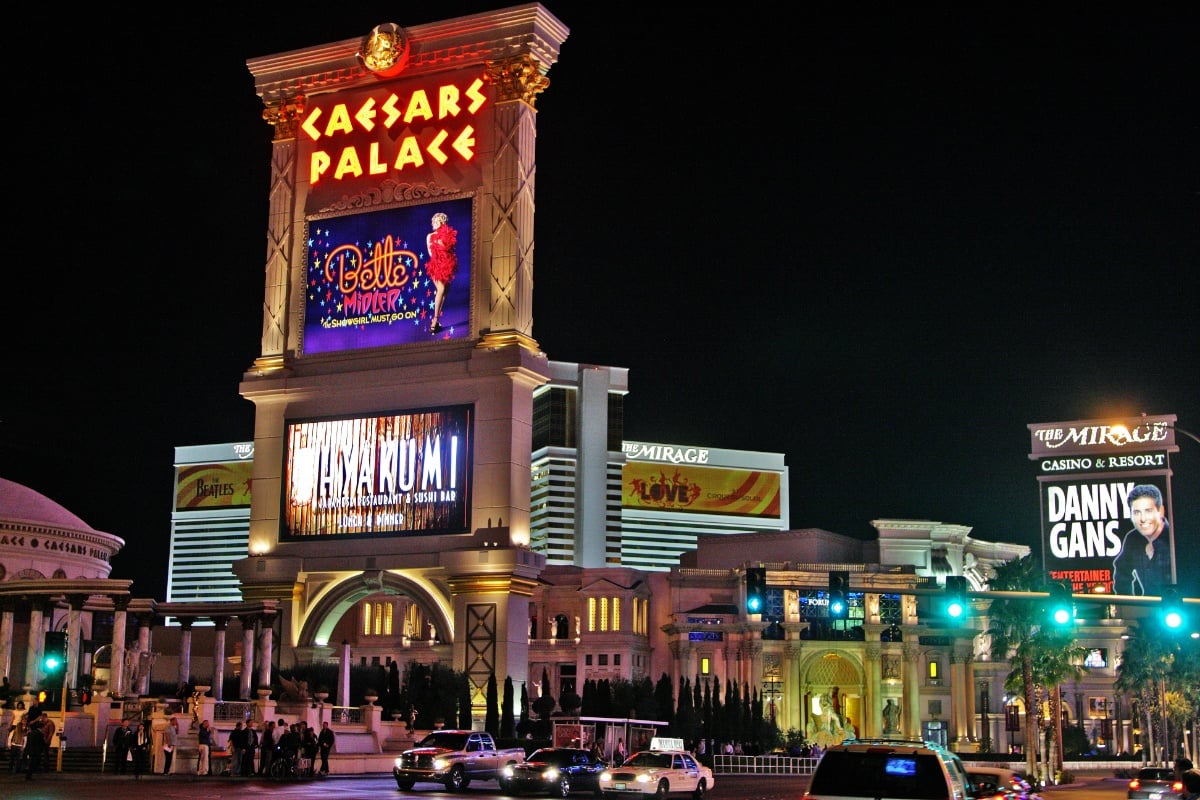Caesars Entertainment Named in Antitrust Probe, Lawsuit Claims Expedia Coordinated Hotel Advertising Conspiracy
Posted on: May 14, 2019, 10:30h.
Last updated on: May 14, 2019, 09:55h.
Caesars Entertainment has been named in an antitrust lawsuit that alleges Expedia conspired with hoteliers including the casino giant in an online advertising scheme.

Four state attorneys general allege that Expedia Group and several hotel chains orchestrated a scenario that banned certain advertisements depending on what an online user originally searched for. In the court filing submitted in Utah, the plaintiff – TravelPass Group – argues that Expedia coordinated with hotel brands to make sure competitor ads weren’t displayed.
As example, a person who searched for a Marriott in Boston wouldn’t see an advertisement on the online booking site for a Hilton. The hotels accused of participating in the advertising plot include Hyatt, Marriott, Wyndham Hotels, Choice Hotels (Quality Inn, Sleep Inn, Clarion), and Caesars Entertainment.
The defendant hotels’ illegal activities have severely reduced, and in many cases even eliminated, the revolutionary benefits of the internet economy for hotel consumers,” TravelPass said in the complaint. “The conspiracy has left in its wake an online travel booking marketplace characterized by deliberately limited information and high transaction costs.”
Travelpass partners with hotels to expedite and improve the online booking process. The Utah-based company additionally operates several internet hotel websites including Reservation Counter and Reservation Desk.
Lawsuit Allegations
Utah Attorney General Sean Reyes says the lawsuit involving Caesars stems from Google keyword bidding. Prior to 2014, the hotels named in the court filing made keyword offers on any name and search term.
For instance, Marriott might outbid Hilton for its online ad to be displayed when someone searched for “Boston hotel,” or even “Hilton Boston.” But Google told TravelPass in an information request that the named hotel chains stopped outbidding others in early 2014.
Reyes argues that Expedia, which also owns Orbitz, Hotels.com, and Trivago, coordinated the decision to stop advertisement bidding among the brands. Under federal and state antitrust laws, companies cannot conspire to harm or reduce competition.
A state judge in Utah has ordered Expedia to enter into an arbitration process with TravelPass. Reyes’ office says there’s “reasonable cause to believe that a violation of the Utah Antitrust Act has occurred based upon the allegations set forth in the lawsuit.”
Hotels by the Numbers
Marriott and Hilton are two of the world’s largest hotel chains, respectively owning 1.3 million and 880,000 rooms.
Casino Operator Hotel Rooms
MGM Resorts – 48,968 rooms
Caesars Entertainment – 40,010 rooms
Las Vegas Sands – 19,932 rooms
Penn National Gaming – 8,800 rooms
Wynn Resorts – 8,135 (when Encore Boston opens)
Caesars Entertainment operates casino resorts on four continents, and welcomed more than 115 million guests last year.
After emerging from Chapter 11 bankruptcy in the fall of 2017, Caesars unveiled a non-gaming focus. The company said four of its brands – Caesars Palace, Flamingo, Cromwell, and Linq – were available for hoteliers wishing to franchise.
“Caesars Entertainment brings instant brand recognition, category-leading customer loyalty, unique hospitality and entertainment amenities, as well as decades of management expertise to world class partners,” outgoing Caesars CEO Mark Frissora declared at the time.
No comments yet